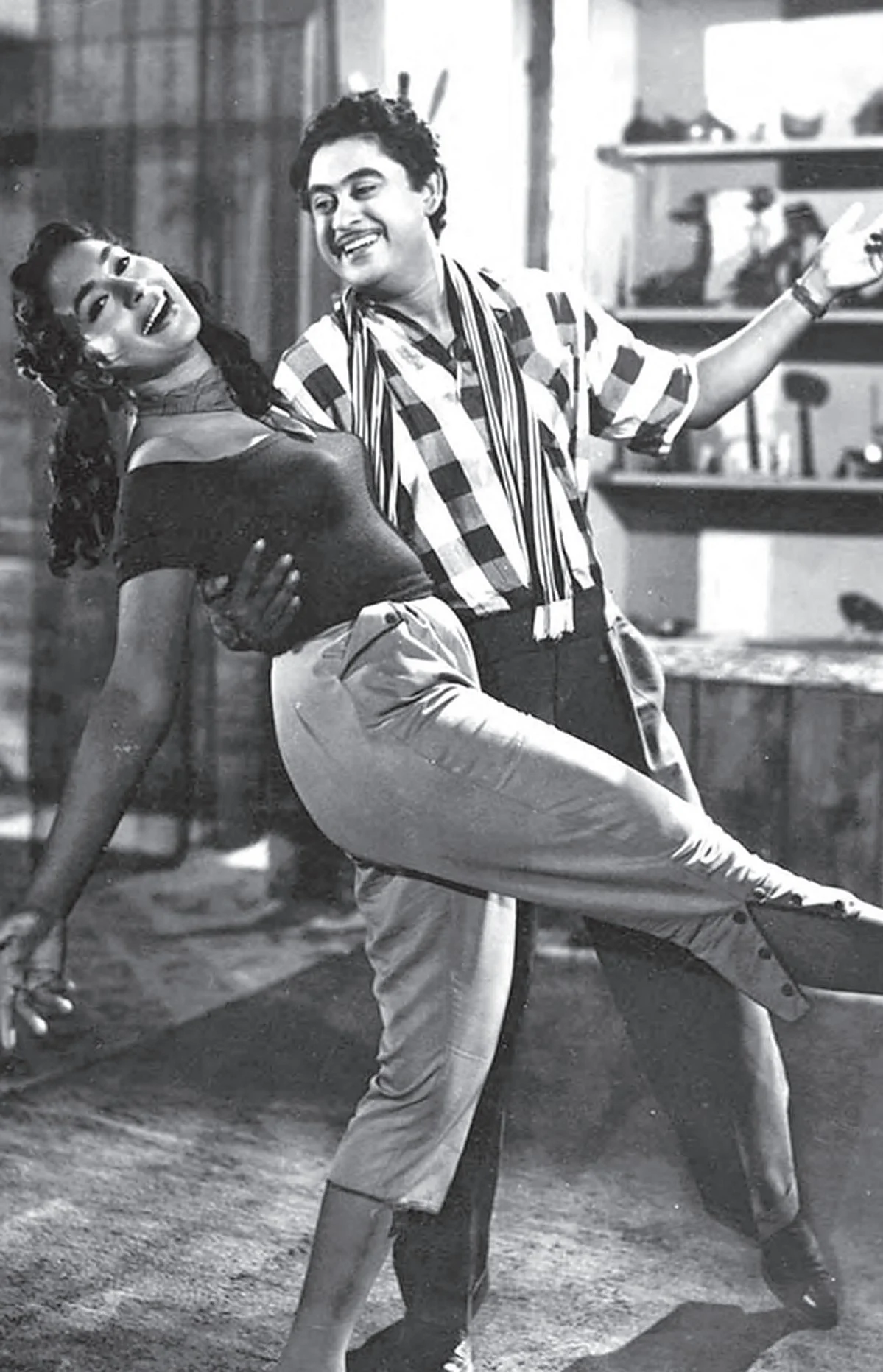Book Extract: Kishore Kumar - The Untutored Genius
Much has been said and heard about the maverick genius of Kishore Kumar but this labour-of-love biography will surprise you with its excavatory rigour

Arun Sharma, a sound engineer who was a regular with Dev Anand, goes back in time: “We were shooting Kishoreda’s song ‘Bullet bullet bullet’ [1976] at Sunset Dining Room [now defunct] of Sun-n-Sand Hotel. Suddenly, the unit was asked to pack up. It was hardly 4 or 4.30 p.m. We were then told that S.D. Burman had passed away and we would be going there. A crestfallen Dev sahab led the way.”
Burman had been confined to bed for some time following a stroke that had partly paralysed him in November 1974. He was admitted to Bombay Hospital and had spent a few months there before returning to his son’s penthouse, Odena.
Strapped to a wheelchair since then, he had to be moved to the hospital again in September 1975. This time, he was in a severe coma, practically responding to nothing. The apocryphal story goes that he did open his eyes once when Pancham gave him the news of East Bengal Club knocking the daylights out of Mohan Bagan with a 5-0 victory at the IFA Shield finals in Calcutta. That was on 29 September.
A few days later, sensing that the end was near, the doctors advised he be moved to his home.
October 31, 1975 was when the world would see him for the last time. Kishore, who came down hurriedly as the news reached him through Pancham, kept staring at his face and sometimes at nothing. He later said in a radio programme dedicated to his Sachinda, “How can I forget that day? Sachinda was asleep and I was sitting beside him. He was mum but I felt that his voice wanted to tell me something.”
As the funeral journey proceeded to the Juhu crematorium, songs from his last film, which was running to a full house, played on the mic. Kishore Kumar’s deep voice scythed through the commotion on the six kilometre journey, which Kishore and Dev covered on foot. ‘Badi sooni sooni hai’, recorded under the supervision of Pancham as Burman Sr was incapacitated, would be registered as one of Kishore’s most loved songs of all time and among Kishore’s top ten favourites.
By the time ‘Aaye tum yaad mujhe’ was to be recorded, Burman had completely lost his ability to communicate. During the sitting session with Kishore, Yogesh, the lyricist, sang the tune just as Dada Burman had taught him. Kishore would snub Babloo Chakravarty, the arranger, when he expressed dissatisfaction with Yogesh’s rendition and proposed changes to the metre: “Keep it exactly as Sachinda had sung it. Absolutely no changes.”
In the 1970s, no one in Calcutta would have guessed that they would witness a show as grand as a Rafi-Kishore jugalbandi with Pancham and Asha. It happened on 9 and 10 February 1980, when all four graced the Netaji Indoor Stadium. The Rafi-Kishore show was marketed as a competition. A healthy one, but competition, nevertheless.
Rafi stole the show on day one. Kishore came back with his softer numbers like ‘Zindagi ka safar’ the next day. At the request of Rathin Sengupta, the chief secretary then, Kishore also sang ‘Ami chini go chini’. With Kishore seeking seclusion at Hotel Hindusthan International while Rafi had put up at the Ritz, no greetings were exchanged on the evening of day one. On day two, both were friends.
This would be the last time Kishore was on stage with Rafi. Rafi’s death on account of a heart attack on 31 July 1980 would see the second of the triumvirate leave. Rafi and Kishore had given a shoulder to Mukesh’s body after it was brought to Bombay from Detroit in August 1976. This time, Kishore was alone. Among the first to visit Rafi’s house in Bandra after hearing the news, he sat near the dead body and kept staring at his face in silence.
Rafi was not just a co-singer. Their relationship was far removed from the internecine wars that flourished behind smiling faces in Bombay. Rafi would accompany Kishore to hear Amit Kumar sing. Or to Basu Chakraborty’s house, eagerly waiting for the fish fries flown in from Malancha, a famous food joint at Shyambazar, Calcutta. He was one of the very few who could request Kishore for a treat at his place. Kishore considered Rafi a dear friend and a respected senior, often addressing him only as ‘Sahab’.
He drew attention to Rafi’s name as the secular face of India during a trip to South Africa in March 1976. Rafi reciprocated the respect and charged only a rupee when he sang for Kishore’s composition ‘Band mutthi laakh ki’ for Chalti Ka Naam Zindagi (1981). This was also the last song featuring the three Ganguly brothers together.
Kishore found it difficult to bring himself to sing after Rafi’s demise. The puja songs of 1980, which became the record company Megaphone’s cash cow for the year, were being planned. A reluctant Kishore had to be forced out of his self-imposed isolation. ‘Shey jeno amar pashe aajo boshe aachhe’, written by Mukul Dutta and composed by Hemanta Mukherjee was like Kishore’s tribute to Rafi and Uttam Kumar, who passed away on 24 July, a week before Rafi.
Kishore would also keep a small photo of Rafi in the shows that followed that year, often starting with Rafi’s immortal song from Chitralekha (1964), ‘Man re tu kahe na dheer dhare’, which talks about searching within for contentment.
Follow us on: Facebook, Twitter, Google News, Instagram
Join our official telegram channel (@nationalherald) and stay updated with the latest headlines
